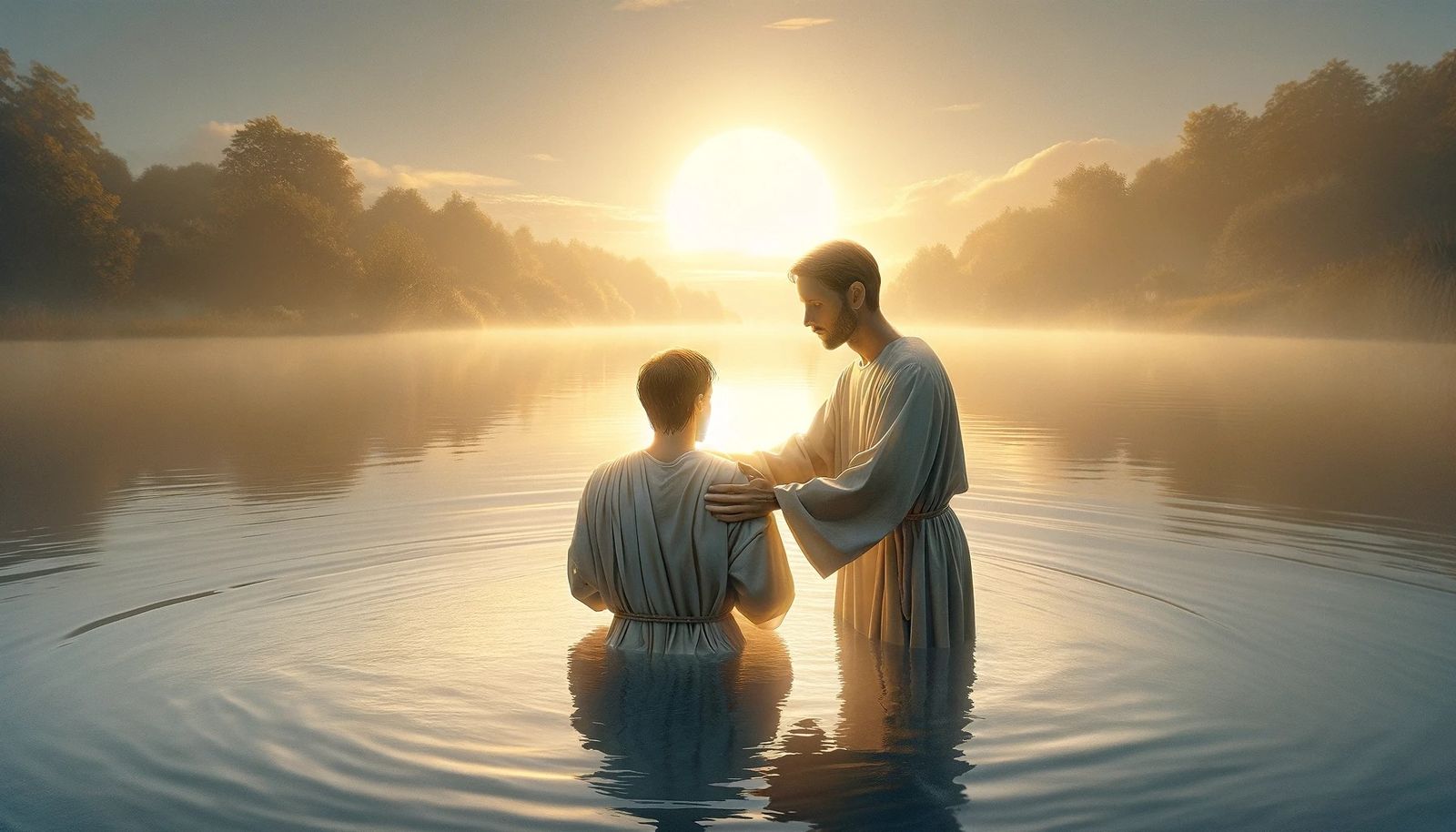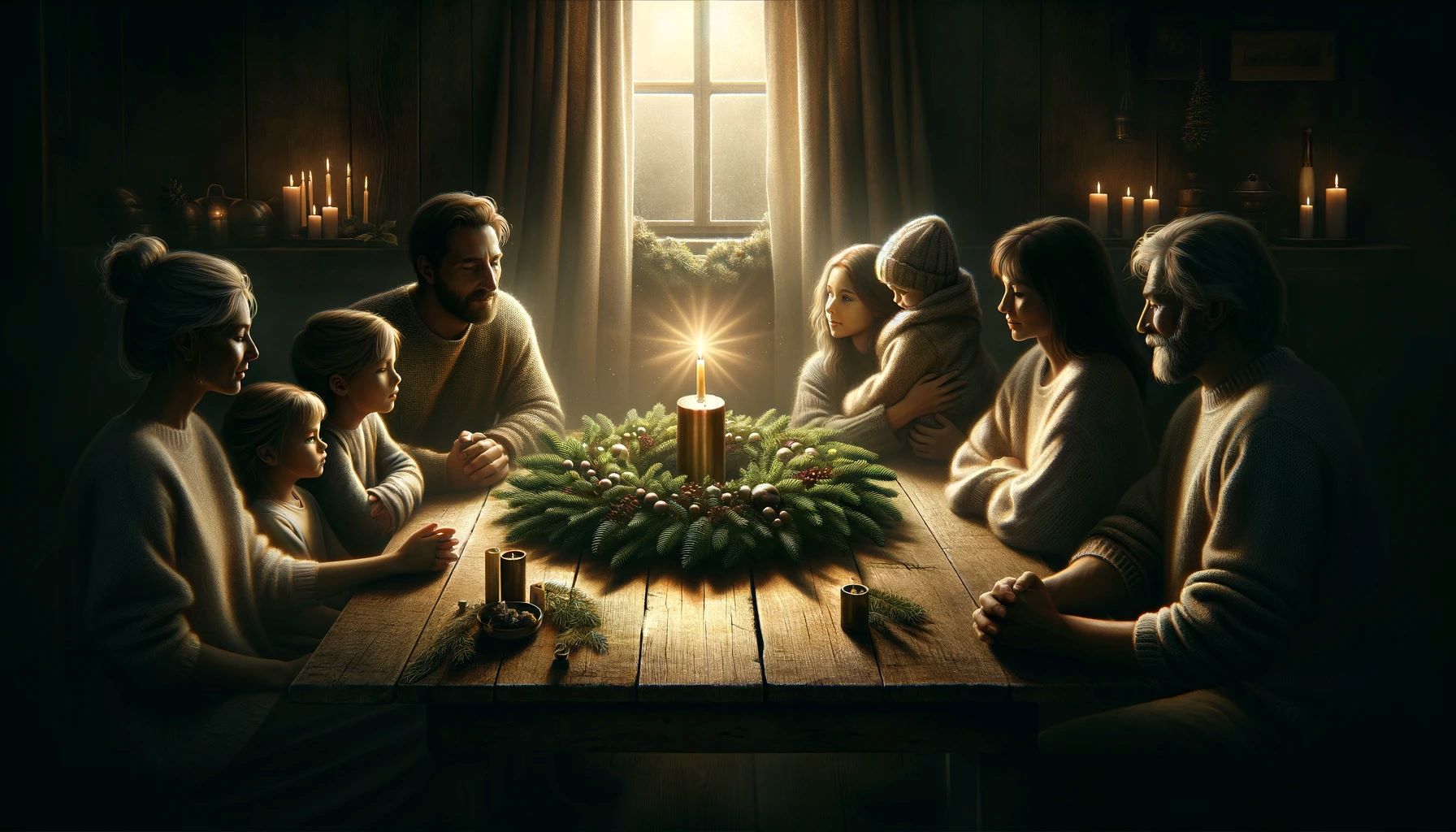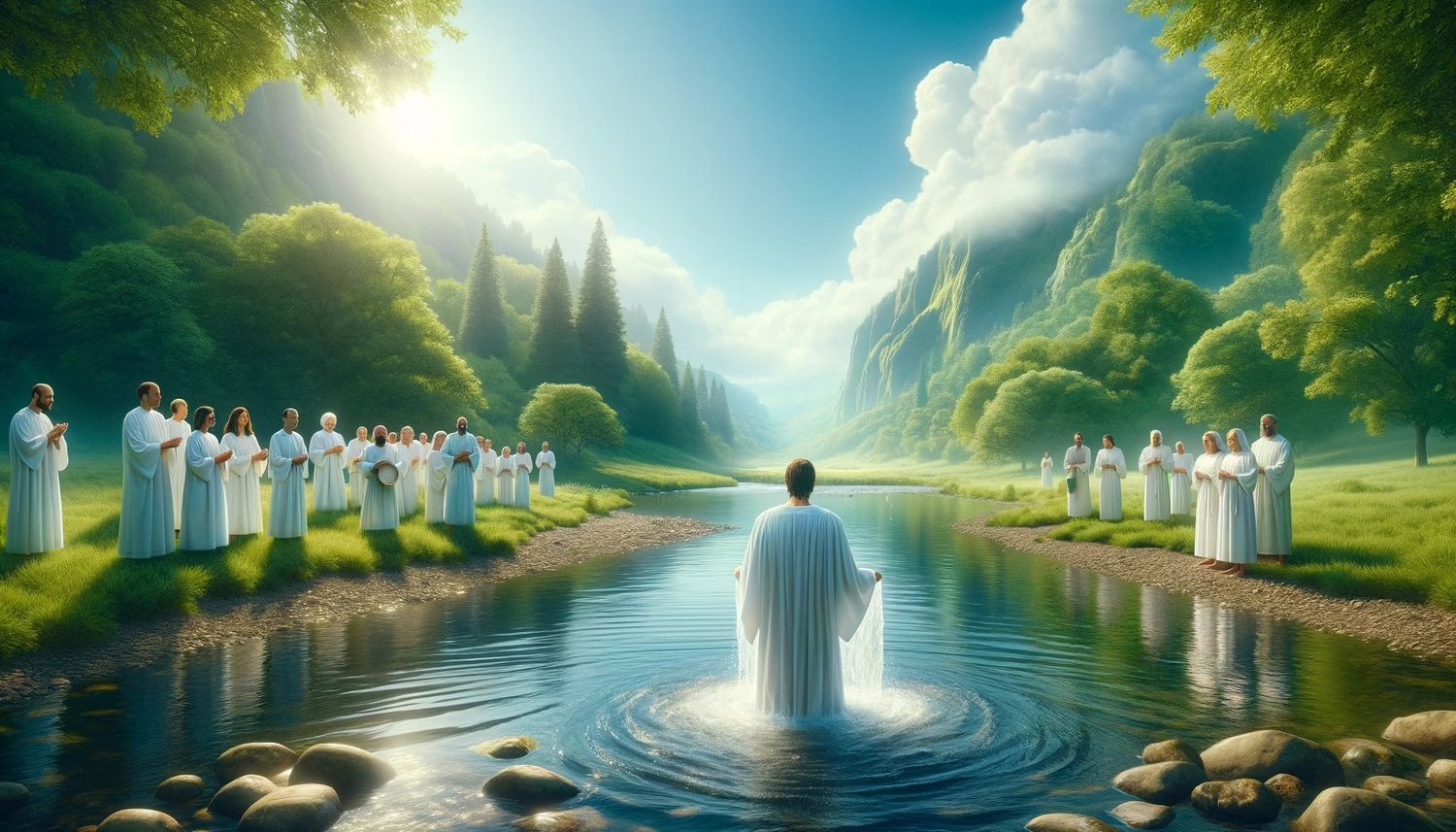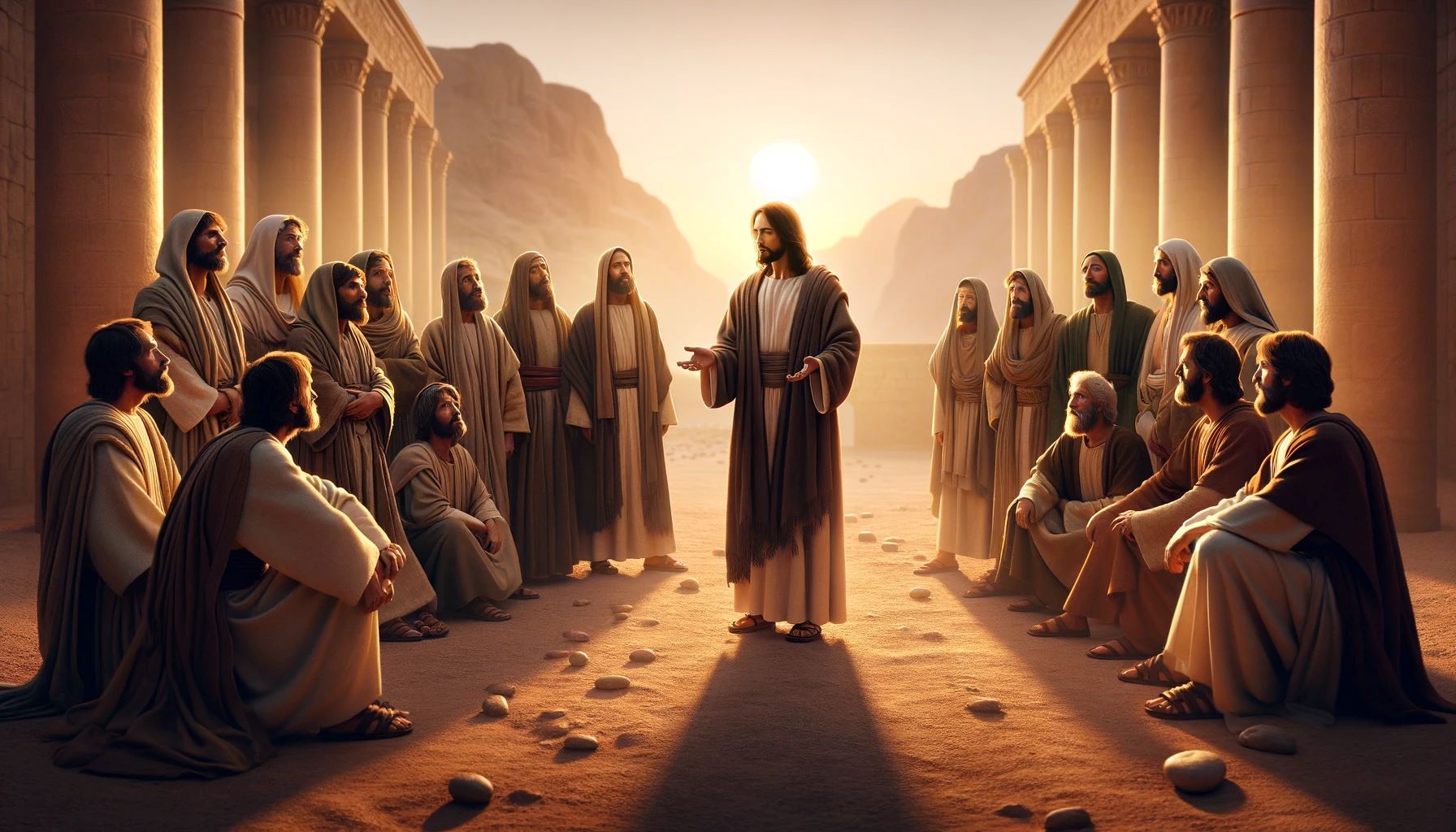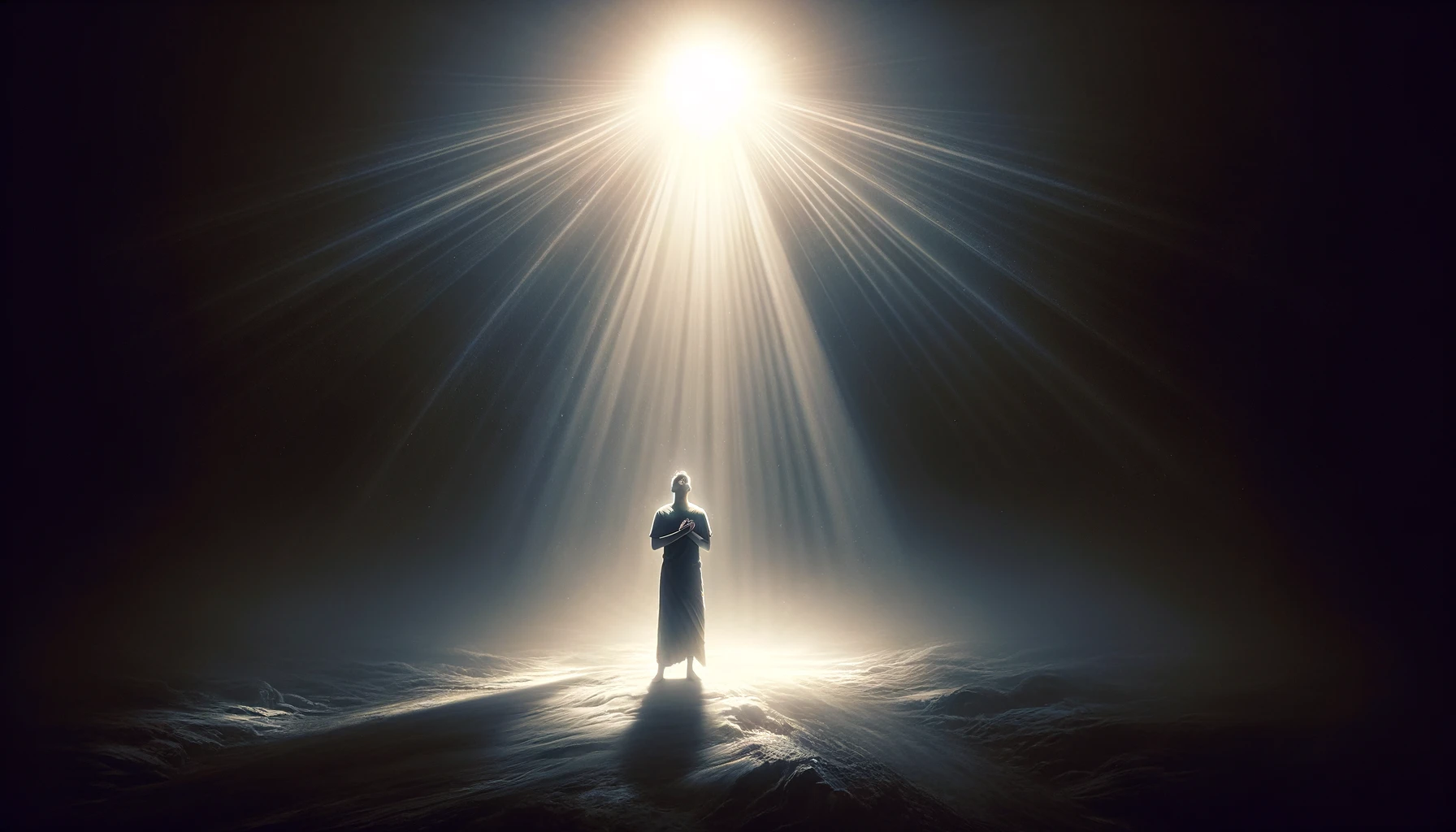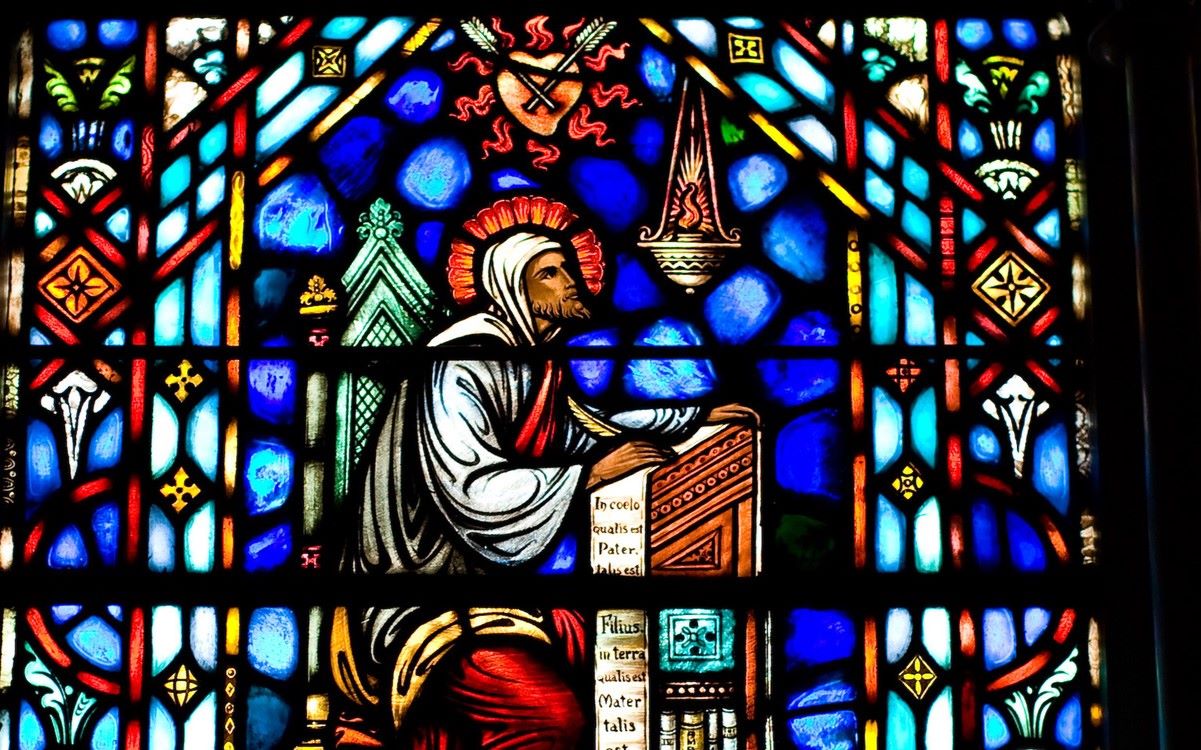Home>Christian Resources>What Day Is Thanksgiving And Why Is It Important To Christians?


Christian Resources
What Day Is Thanksgiving And Why Is It Important To Christians?
Modified: January 9, 2024
Ericka Andersen, an editor at Christian.net, expertly merges digital strategy with content creation, focusing on faith and societal issues. Her communication skills enhance the platform's engaging narratives, fostering meaningful dialogue on belief's impact on society.
Answering what day is Thanksgiving, its origins, and its importance to us are valuable pieces of knowledge we should know before celebrating
(Many of the links in this article redirect to a specific reviewed product. Your purchase of these products through affiliate links helps to generate commission for Christian.net, at no extra cost. Learn more)
Humans are creatures who love to celebrate. In fact, we are the only living creatures with the capability to differentiate a “special” day from a regular one. Combining intellect and history, celebrations like Thanksgiving exist. Today, we love preparing meals and gathering our loved ones at one table to celebrate it. We give thanks and worship God through Thanksgiving. However, this doesn’t take out questions like “What day is Thanksgiving, and what about it?” or “Why is Thanksgiving important to Christians, and should we celebrate it?”. In saying this, here are the why’s, when’s, and how’s of celebrating Thanksgiving and what it means as a Christian.
What Day Is Thanksgiving?
This annual holiday’s date roots from deep historical origins involving many historical figures like Squanto, Sarah Josepha Hale, Abraham Lincoln, and George Washington. If someone ever asks what day Thanksgiving is on, there’s a sure answer to that; it’s the fourth Thursday of November every year.
An American writer, activist, and an influential editor, Sarah Josepha Hale had campaigned on making Thanksgiving an official holiday in order to unite the nation. After 36 years, President Abraham Lincoln finally created legislation establishing the national holiday of Thanksgiving. So in 1863, Thanksgiving was considered a unifying day after the strain of the American Civil War. Following George Washington’s original proposition, the date of Thanksgiving was held every fourth Thursday of the eleventh month.
However, the date of Thanksgiving was challenged by Franklin D. Roosevelt in 1939. The reason behind this was that at the end of the Great Depression, President Roosevelt believed that changing the date of Thanksgiving to a week earlier would help increase retail sales. So, when he implemented “Franksgiving” (this rescheduled the holiday), the date was subjected to change. But, the standard of keeping it on the fourth Thursday was already well-known since the time of Abraham Lincoln. Also, by changing the date, it disrupted the schedule of one of the country’s best-known sports, football. Thus, he received backlash, and his proposal to change the date of Thanksgiving permanently was denied. After receiving backlash, he then decided to bring the fourth Thursday of November back as the official Thanksgiving date.
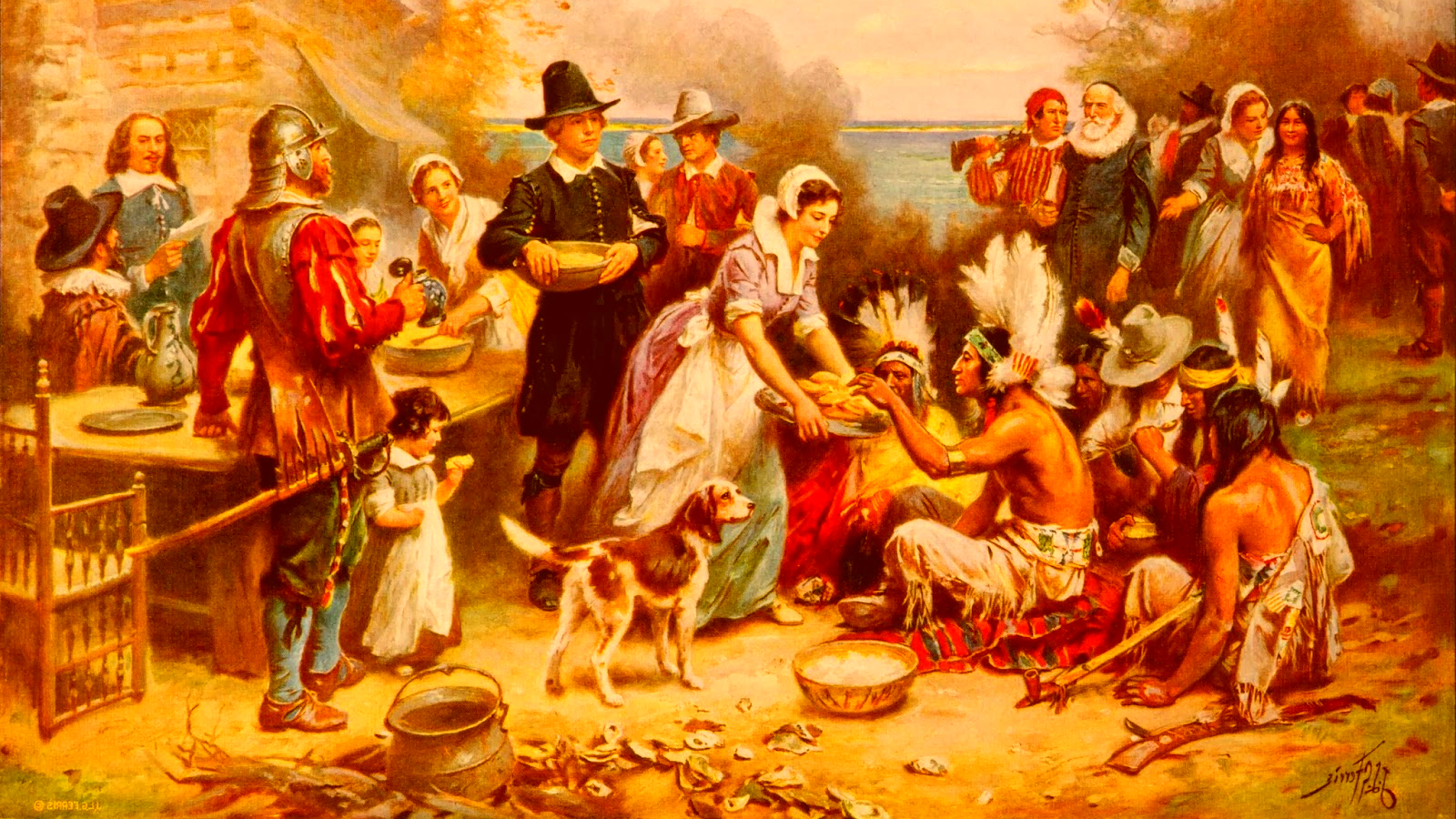
Read more: Why Is Atonement Important In Christianity
Christianity And Thanksgiving
Now, Halloween, Christmas, and other celebrations have pagan roots. But, does this also include Thanksgiving? Actually, this annual celebration has a lot to do with Christianity and praising God! To understand this, we need to go back to its origins.
The first Thanksgiving meal by the Plymouth Colony settlers and the Wampanoag tribal confederation is the birth of this holiday. This meal was a feast celebrating the harvest. For background, this harvest is very important considering the difficult trials voyagers went through while on the Mayflower in 1620. This tribulation lasted for more than two months, causing the deaths of over a hundred people. This was then followed by a brutal winter, killing half of the population due to unpreparedness and starvation.
After consecutive waves of problems, their first harvest was a success, igniting this big celebratory event. This harvest symbolized many things such as prosperity, resilience, the Mercy of God, and unity between both parties. From this, the first Thanksgiving was born and later made official by America’s first president, George Washington.
Now knowing the roots and finding the answer to what day is Thanksgiving on, what’s the real cause behind this jolly holiday? Surprisingly, this celebration has a lot to do with God, even as we trace it back to its history! A historian notes that from the perspective of the pilgrims, there’s no such thing as a “purely secular” occasion. Meaning, every event worthy of celebrating has something to do with religion. Even before, Thanksgiving is a celebration in giving thanks to the Lord’s never-failing kindness. Although non-believers still participate in Thanksgiving for its historical or cultural roots, gratitude to God remains as the origin of Thanksgiving. There are several accounts regarding this but, the intent of praising God stays consistent.
-
Edward Winslow’s Accounts
Edward Winslow is a writer, printer, trader, diplomat, social scientist, and public relations practitioner. Among the many things he is, one of the most notable outputs is the accounts regarding the story of the Pilgrims. From these accounts, we can tell that the Thanksgiving dinner symbolizes their gratitude towards God. There he wrote that although it was not so plentiful, how far they’ve gotten was through the goodness of God. Historians state that this was written in the summer of 1623. They also add that after the celebration, giving thanks to God became a tradition in the colony.
-
“Sukkot” (Feast of Tabernacles)
Other sources cite that the American tradition of Thanksgiving stems from the Jewish tradition of celebrating “Sukkot” or the Feast of Tabernacles. This feast has its basis from Leviticus 23:33-44. It is also known as the “Festival of Shelters” or the “Feast of Ingathering”. Recalling the arrival of the Pilgrims in Holland (1607), accounts point that they encountered another prosecuted group – The Sephardic Jews. These people are known to have been exiled from Spain. After fleeing from the country, those who chose to leave became neighbors with the Pilgrims.
For the Sephardic Jews, the Feast of Tabernacles is a commemoration for the freedom of the Jewish people against Ancient Egypt. Like the American take on Thanksgiving, Sukkot involves celebrating with family and friends over a big meal. Historians also point out similarities in these holidays. They note how these celebrations fall around the same time and their similar involvement of turkey or “Hodu” in Hebrew. Most importantly, the thought of offering thanks to God also remains the same in both accounts. The only major difference between both is how Sukkot is a “sacrifice of gratitude” more than a “celebration or feast”.
-
Institutionalizing Thanksgiving
Without a formal statement from the authorities regarding Thanksgiving, it was just a “tradition”. Even before George Washington, many areas were accustomed to sparing time to thank God for His Mercy. But it was in 1789 that Thanksgiving became a national proclamation. The president emphasized that the citizens should thank God for the food, protection, freedom, and presence of leadership. Thus, setting the last Thursday in November as a special time to do so.
Excluding the long history as to what day Thanksgiving is and why this is so, Washington is right. We do need God. Think about it. The Pilgrims’ acknowledgment of the harvest as a blessing from God’s Hands supports our responsibility as believers to insist on thanking God. Hypothetically speaking, if Thanksgiving was not an official annual holiday, we are still responsible for thanking God. The easiest argument for this is how the Pilgrims thanked God despite it not being an official announcement, nor a national holiday!
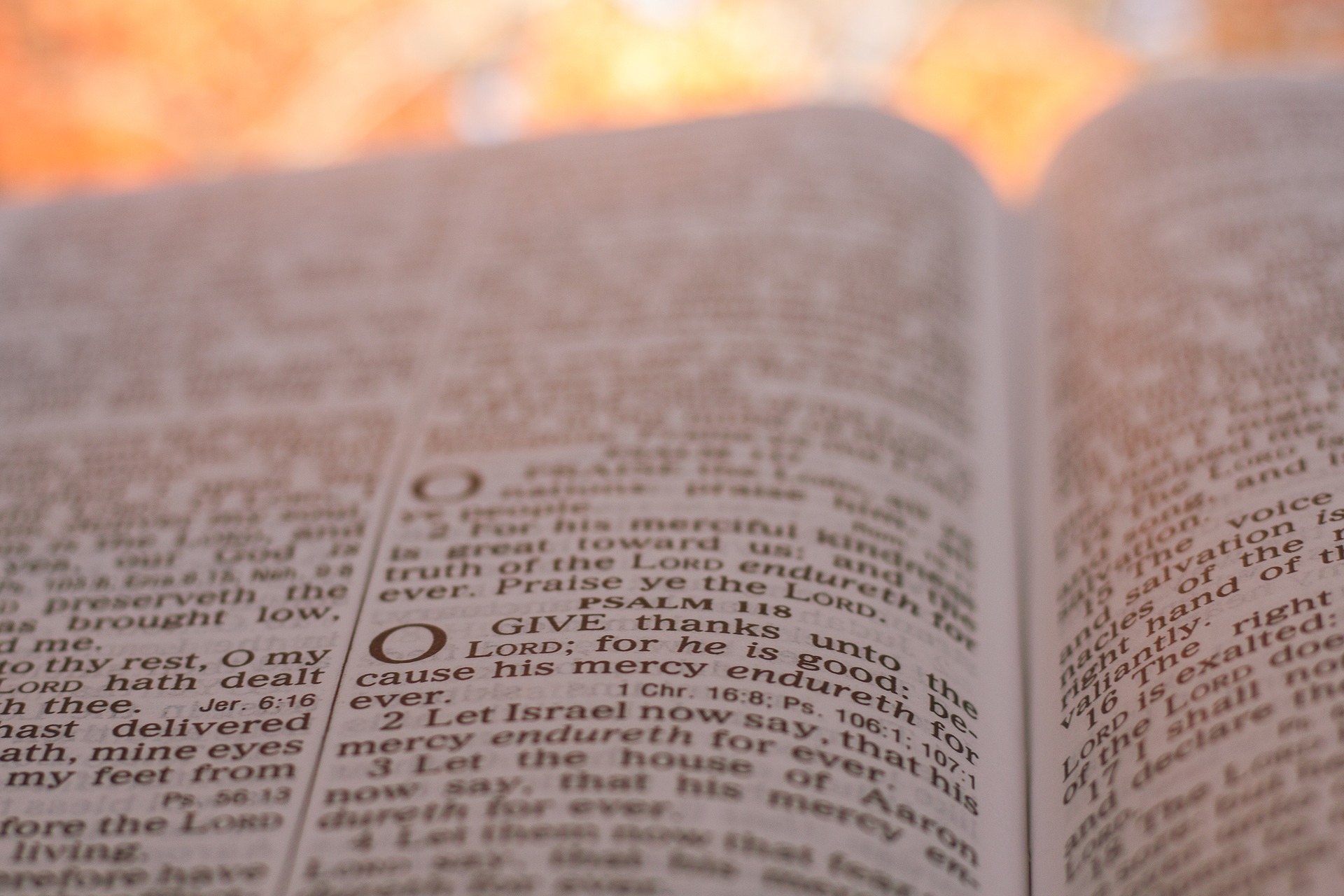
Is Thanksgiving Important To Christians?
In celebrating events, Christians should pay great attention to what tradition they are introducing and supporting inside their households. Sometimes, we unknowingly involve ourselves and our families in events that oppose the Bible. Of course, this is easy to correct as long as we are knowledgeable of our limits. But, how about Thanksgiving? Does following what day Thanksgiving is necessary? Are there any restrictions? or does it serve its purpose in strengthening our relationship with the Lord? Here are the answers to those questions.
-
Thanksgiving as a Christian Celebration
Indeed, Thanksgiving is an American tradition. But in Canada and some areas of Brazil, Thanksgiving Day is also a part of their practice. What if you’re not from any of these countries? Actually, Thanksgiving became an American tradition after being made official by the first American president. However, remember that Thanksgiving was originally set to praise and thank God. Therefore, it makes the cut as a Christian celebration.
A similar case we can relate to this is Christmas. While the background of Christmas is far different from Thanksgiving, other countries have institutionalized Christmas as an official non-working holiday. Meanwhile, there are other countries that don’t. It depends on the household that chooses to celebrate it. As long as your reason for celebrating Thanksgiving is appropriate and are thanking God, Thanksgiving can be a memorable celebration of giving thanks! No other reason trumps this.
-
Celebrating History as Christians
Speaking of appropriateness, how can we celebrate history while staying in the right lane as Christians? 1 Corinthians 10:31 gives us a very clear answer to this. It states that in whatever we do, we should honor God. This includes celebrating. God should not nor should He ever be out of the picture. But, is it possible to celebrate history with the involvement of people while praising the goodness of the Lord? The answer is, yes.
It takes a shift in perspective. During Thanksgiving, you can show your gratitude and respect to history by praising God. In fact, this is how Thanksgiving was originally made, right? People did not praise their fellow men. Instead, they thanked God for their harvest. Furthermore, if we recall Abraham Lincoln’s example, it gives us clarity. Lincoln’s proposal for Thanksgiving was never about the greatness of the people but, the generosity of God. As Christians, we should celebrate with this mindset for everything good and fruitful in the past is because of God’s Mercy. This is what makes Thanksgiving worthy of celebration.
Thanksgiving And The Family

Deuteronomy 6:6-7 tells an important lesson we can relate to Thanksgiving. Here it states that parents should speak diligently to their children or family pertaining to God’s Works. Of course, gratitude or the virtue of giving thanks is one of the most important teachings we can give to our family members. What better time of the year can we find for giving thanks to God other than Thanksgiving? While this annual event is known globally as the time where parents dine with their children, there are many benefits Thanksgiving can offer to families as a Christian celebration.
-
Thanksgiving aids in strengthening bonds.
“A family that prays together stays forever.” is a quote you are probably familiar with. While this is certainly a highly used statement, we can’t deny its truth. Thanksgiving is one of those celebrations wherein parents can easily gather their relatives and children. For those families with members separated in different areas, this is the holiday where they can go home to celebrate. Sometimes we cannot see how holidays like these are God-given blessings that serve as reasons to see our family members who are far from us.
Every year, a household’s Thanksgiving celebration exposes a lot about how each member has grown into Christ. It can sometimes be challenging for families to open up and genuinely be present with each other’s company. But with Thanksgiving, the members of the family are automatically accustomed to being “extra warm” or affectionate. Why? Simple, it’s Thanksgiving!
-
Thanksgiving helps build family traditions.
Family traditions are essential in keeping a strong bond. These are unwritten yet accustomed “rules” members inside a family follow. Thanksgiving is a family tradition anyone can establish. This calls as a great factor for the members to engrave the virtue of giving thanks to God not only as a Christian responsibility but also as a family tradition.
-
It makes family members love and respect more.
The holiday of giving thanks allows people to thank God for the presence of their families and friends even more. It’s like Christmas where people celebrate the Birth of Jesus by handing out gifts or how people become more vocal with their love for others during Valentines’. Since Thanksgiving is about appreciating more of what God has given you, this informs many as to how blessed they are. Today, the world bombards us with information and expectations that blind us from our blessings. But Thanksgiving is one of those times where we can give our minds and hearts time to not think of what we don’t have but, instead appreciate the things we do have.
-
It releases stress and tension.
Spending time with our families alone is a great destresser. Add this with a hearty meal and the spirit of God, Thanksgiving releases stress and tension. Additionally, the spread of social media affects how people communicate. See, we tend to unknowingly reach for our phones during meals without paying attention to what’s in front of us. But Thanksgiving is not a regular meal. People actually feel a sense of responsibility to interact. Thus, allowing them to be vocal about their emotions which is an instant release of stress and tension.
This is also a great time to heal family conflicts and solve grudges regular days just can’t help. Many believers say that Thanksgiving is like a “breather” God has blessed us with to not only thank Him but also, heal through Him. See, praising God is beneficial for us. Our spirit needs the acknowledgment of God’s Mercy and doing this with our family heals us even more.
-
It teaches important lessons to children.
Obviously, Thanksgiving has a lot to do with history. This is something parents can teach their children because of the lessons it upholds. While parts of it are dark and probably too graphic to tell children, the focus of the narration can be shifted to how America’s acknowledgment that the nation needs God. The proclamation of Thanksgiving is a concrete example of humility and gratitude. These are virtues that are better introduced with an actual event from history. Children can learn through this holiday that even before, the practice of thanking God was crucial – it still is and always will be!

Thanksgiving is a marvelous holiday. What makes it even more amusing than what day is Thanksgiving and why lies in knowing that this event is about praising God. This is a big must for believers. But if you think about it, Thanksgiving is the official day of giving thanks. However, it does not restrict us from thanking God every day. This should be more like a yearly reminder to say “thank you, God” even though and no matter what. From its long history to the many people involved before Thanksgiving became Thanksgiving, at the end of the day, it all points out to God.
